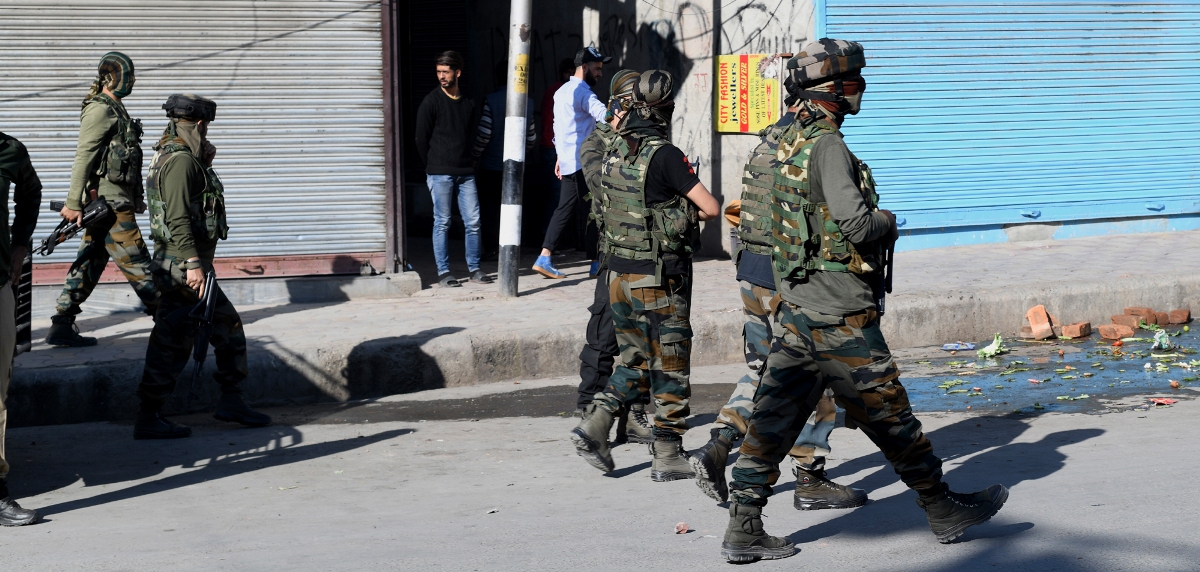by Khalid Bashir Gura
SRINAGAR: As the fight against the invisible onslaught of Coronavirus on humans entered the New Year with drastic changes to life, there is another challenge of Avian Influenza, commonly known as Bird flu.
Initially reported in the state of Rajasthan, Jammu & Kashmir sounded an alert and started collecting samples of birds across the Union Territory on January 5 after neighboring Himachal Pradesh reported cases of the virus.
Raging among the birds, the virus in the erstwhile state of J&K initially made its entry in Udhampur and Poonch districts of Jammu region and was later reported in Anantnag, Pulwama, Kulgam, Baramulla, where the Avian flu was detected in wild crows. The latest entry in the list is Srinagar.
As reported by the district administration, the samples from the dead crows were lifted from two places, near Delhi Public School at Athwajan and the Flood Spill Channel at Peerbagh, and tested positive. Subsequently, an alert was sounded in the radius of 10 Kms of both the areas.
Revealing in a couple of tweets, the administration said: “samples from dead crows were lifted near the Delhi Public School at Athwajan and the Flood Spill Channel at Peerbagh and they have tested positive for avian influenza – H5N8 strain – as per a report received from the ICAR-NISHAD Bhopal.”
In another tweet, there was a preventive measure.“In accordance with the stipulated guidelines, a 10-kilometre radius area around each of the said locations have been declared as an alert zone — where among other measures surveillance and sampling will be conducted to ascertain and prevent the spread.”
Given the scare, as positive cases continue to be detected, authorities are claiming to be prepared to tackle any eventuality and have assured people not to panic.
However, since the onset of 2021, the bird flu has caused deaths of thousands of wild and poultry birds in the neighbouring states of Jammu and Kashmir.
Experts opine there is no need to panic. Talking to Kashmir Life, Dr Purnima Mittal, Director, Animal Husbandry Department said that as of now there is no need to panic and the department is following the guidelines and proper SOP’s. “If at any place positive cases come up, we ensure preventive measures are followed within 1 km radius of the epicentre. And sanitization to carcass disposal is done in a proper way to stop the spread of contagion,” she said.
The Panic
It started from Udhampur district of Jammu region where several cases of Avian flu were reported among the domestic birds. Later the scare surrounded north Kashmir when locals found several dead crows in at least three villages of Uri, Garkote, Nambla and Gohallan. The panic gripped the entire area, more when at least two dozen crows were found dead in Tujer Sharief area of Sopore.
The scare spread later to other parts of the valley and people started avoiding the poultry products.
Confirming the presence of Avian Influenza in Kashmir in view of the presence of lakhs of migratory birds, Wildlife Warden (Wetlands), Ifshan Dewan said that there is the presence of avian influenza in Kashmir but we carry on daily surveillance and monitoring. “The wetlands are safe and birds are healthy. We have not found out any such case of bird death so far. Around six to seven lakh birds are present in different wetlands of Kashmir. The wetlands teams have been alerted and are being monitored,” she said.
Detailing the procedure of taking samples, the officials said the samples that are collected from the affected areas or during random sampling in Kashmir are first sent to the Institute of Animal Health and Biological Products, Zakura Srinagar, which carries out preliminary testing and from the Zakura lab the suspected samples, are further sent either to Bhopal or Jalandhar for confirmation.
Pertinent to mention, India has only two high-end dedicated labs: ICAR-National Institute of High-Security Animal Diseases (NIHSAD), Bhopal and Regional Disease Diagnostic Laboratory (RDDL), Jalandhar which are catering to the entire country.
Besides the onslaught on the wild birds, the virus is contagious to poultry birds as well and can prove fatal to the poultry industry. Resultantly, the authorities have appealed to people to inform and report the nearest concerned officials of any unusual bird deaths in the area and not to bury the dead birds on their own, or throw the carcass in public places or sewage drains.
Negating the reports, Mushtaq Ahmad Shah, Joint Director Poultry said there is no ban on poultry as no such cases have been detected in the poultry in Kashmir and people can consume it after following proper cooking SOP’s. However, the people associated with the trade are advised to follow proper protocols and safety measures.
Earlier, last month the administration had banned the import as a precautionary measure. The poultry farm owners have been advised to inform local authorities if any ‘unusual mortality of poultry’ takes place, he added.
According to the World Health Organization (WHO), more than half of the world’s bird flu incidents take place in the Central Asian Flyway (CAF) that covers almost the entire Indian subcontinent. Close to 90 percent of birds, migrating through the flyway, visit India’s wintering sites and some of them may be carriers of various avian diseases. The bird flu spreads through their droppings, contaminating the water bodies and places they visit.
According to a study conducted last year by the Wetlands Division Kashmir annual Asian Waterfowl Census in which a total of 813043 numbers of birds belonging to 39 species were recorded in all the wetlands of Kashmir. Hokersar contributed 59 percent of the total bird count followed by the Wular Lake with 14 percent and Dal Lake 11.8 percent.















